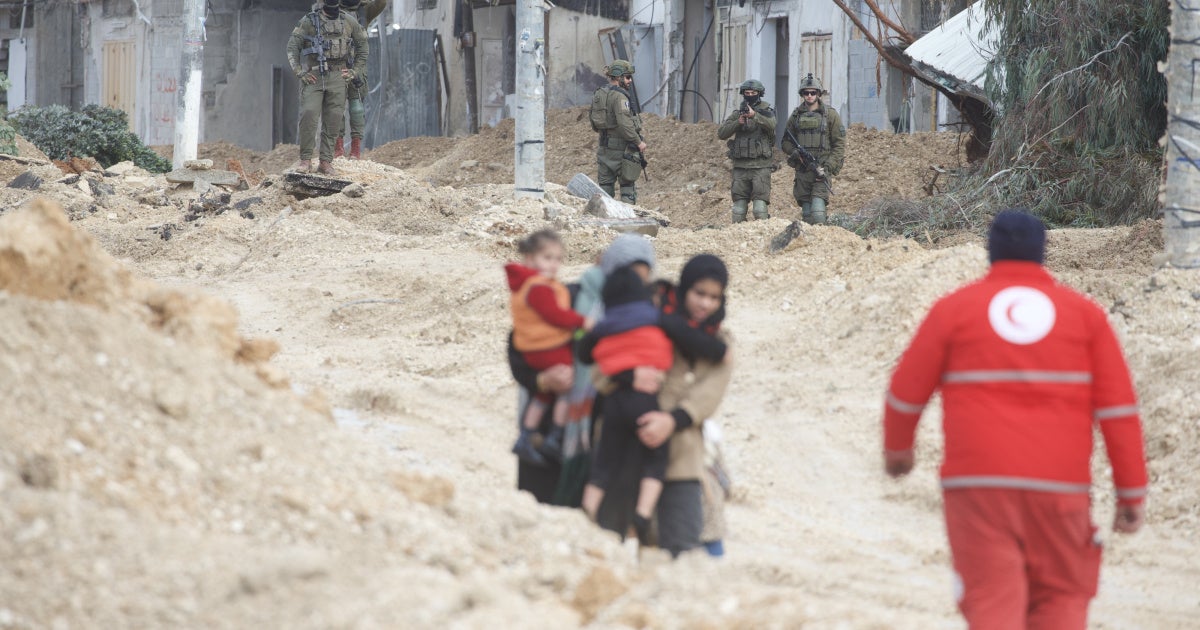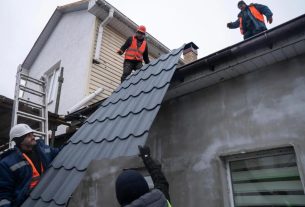- The Israeli government’s forced displacement of the populations of three West Bank refugee camps in January and February 2025 amount to war crimes and crimes against humanity.
- The Geneva Conventions prohibit displacement of civilians from occupied territory except temporarily for imperative military reasons or the population’s security. Displaced civilians are entitled to protection, accommodation, and to return as soon as hostilities in the vicinity cease.
- Senior Israeli officials, including Prime Minister Benjamin Netanyahu and Defense Minister Israel Katz, should be investigated for the refugee camp operations and appropriately prosecuted for war crimes and crimes against humanity. Governments should impose targeted sanctions and take other urgent action to press Israeli authorities to end their repressive policies.
(Jerusalem) – The Israeli government’s forced displacement of the populations of three West Bank refugee camps in January and February 2025 amount to war crimes and crimes against humanity, Human Rights Watch said in a report released today. The 32,000 people reportedly removed have not been permitted to return to their homes, many of which Israel forces have deliberately demolished.
The 105-page report, “‘All My Dreams Have Been Erased’: Israel’s Forced Displacement of Palestinians in the West Bank,” details “Operation Iron Wall,” an Israeli military operation across Jenin, Tulkarem, and Nur Shams refugee camps that began on January 21, 2025, days after a temporary ceasefire was announced in Gaza. Israeli forces issued abrupt orders to civilians to leave their homes, including with loudspeakers mounted on drones. Witnesses said soldiers moved methodically through the camps, storming homes, ransacking properties, interrogating residents, and eventually forcing all families out.
“Israeli authorities in early 2025 forcibly removed 32,000 Palestinians from their homes in West Bank refugee camps without regard to international legal protections and have not permitted them to return,” said Nadia Hardman, senior refugee and migrant rights researcher at Human Rights Watch. “With global attention focused on Gaza, Israeli forces have carried out war crimes, crimes against humanity, and ethnic cleansing in the West Bank that should be investigated and prosecuted.”
Human Rights Watch interviewed 31 displaced Palestinian refugees from the three camps and analyzed satellite imagery and Israeli military demolition orders confirming the widespread destruction. Researchers also analyzed and verified videos and photographs of the Israeli military operations.
On January 21, Israeli forces stormed Jenin refugee camp, deploying Apache helicopters, drones, bulldozers, and armored vehicles to support hundreds of ground troops who forced people from their homes. Residents told Human Rights Watch they saw bulldozers demolishing buildings as they were being expelled. Similar operations took place in Tulkarem refugee camp on January 27 and in nearby Nur Shams camp on February 9.
The Israeli military provided no shelter or humanitarian assistance to displaced residents. Many sought shelter in the crowded homes of relatives or friends, or turned to mosques, schools, and charities.
A 54-year-old woman said that Israeli soldiers “were yelling and throwing things everywhere…. It was like a movie scene – some had masks and they were carrying all kinds of weapons. One of the soldiers said, ‘You don’t have a house here anymore. You need to leave.’”
Since the raids, Israeli authorities have denied residents the right to return to the camps, even with no active military operations in the vicinity. Israeli soldiers have fired upon people trying to reach their homes, and only a few have been allowed to collect their belongings. The military has bulldozed, razed, and cleared spaces for apparently wider access routes inside the camps, and have blocked all entrances.
Human Rights Watch analysis of satellite imagery found that six months later, more than 850 homes and other buildings had been destroyed or heavily damaged across the three camps. The assessment focused only on areas of mass destruction that included buildings destroyed and severely damaged, often due to the widening of alleys and roads in the densely built camps.
A preliminary satellite imagery assessment by the United Nations Satellite Center from October 2025, found that 1,460 buildings sustained damage in the three camps, including 652 that showed signs of moderate damage.
The UN Relief and Works Agency for Palestine Refugees in the Near East (UNRWA) established the three camps in the early 1950s to house Palestinians who were expelled from their homes or forced to flee following Israel’s creation in 1948. Those refugees—those displaced and their descendants—had resided there ever since.
Article 49 of the Fourth Geneva Convention, applicable in occupied territory, prohibits displacement of civilians except temporarily for imperative military reasons or for the population’s security. Displaced civilians are entitled to protection and proper accommodation. The occupying power must ensure the return of displaced people as soon as hostilities in the area have ceased.
Israeli officials said in a letter to Human Rights Watch that Operation Iron Wall was initiated “in light of the security threats posed by these camps and the growing presence of terrorist elements within them.” However, Israeli authorities have made no evident attempt to establish that their only feasible option was the complete expulsion of the civilian population to achieve their military objective or why they have prohibited residents from returning, Human Rights Watch found.
Israeli officials have not responded to Human Rights Watch queries about when if ever Israel will allow the Palestinians to return. Finance Minister and Minister in the Defense Ministry Bezalel Smotrich said in February that if camp residents “continue their acts of ‘terrorism,’” the camps “will be uninhabitable ruins,” and that “[t]heir residents will be forced to migrate and seek a new life in other countries.”
The authorities’ forced removal of Palestinians from the camps also amounted to ethnic cleansing, a non-legal term to describe the unlawful removal one ethnic or religious group from an area by another ethnic or religious group.
The raids were carried out while the spotlight has been on Gaza, where Israeli authorities have committed war crimes, ethnic cleansing, crimes against humanity—including forced displacement and extermination—and acts of genocide.
Since the Hamas-led October 7, 2023 attacks in southern Israel, Israeli forces have killed nearly 1,000 Palestinians in the West Bank. Israeli authorities have increased their use of administrative detention without charge or trial, demolitions of Palestinian homes and building of illegal settlements, while state-backed settler violence and torture of Palestinian detainees are also on the rise. Forced displacement and other repression of Palestinians in the West Bank is part of Israeli authorities’ crimes against humanity of apartheid and persecution.
Senior Israeli officials should be investigated for the refugee camp operations and, where found responsible, appropriately prosecuted for war crimes and crimes against humanity, including as a matter of command responsibility. Those who should be investigated include Maj. Gen. Avi Bluth, the Central Command commander who was in charge of West Bank military operations, and oversaw camp raids and demolition orders; Lt. Gen. Herzi Halevi and Lt. Gen. Eyal Zamir, who each served as Chief of the General Staff of the Israeli military; Minister in the Defense Ministry, Bezalel Smotrich, who sits on the security cabinet and also serves as Finance Minister; Defense Minister Israel Katz; and Prime Minister Benjamin Netanyahu.
The International Criminal Court (ICC) Office of the Prosecutor and domestic judicial authorities under the principle of universal jurisdiction should investigate Israeli officials credibly implicated, including as a matter of command responsibility, in atrocity crimes in the West Bank.
Governments should impose targeted sanctions against Bluth, Zamir, Smotrich, Katz, Netanyahu, and other Israeli officials implicated in ongoing grave abuses in the Occupied Palestinian Territory. They should also press Israeli authorities to end their repressive policies and to impose an arms embargo, suspend preferential trade agreements with Israel, ban trade with illegal settlements, and enforce ICC arrest warrants.
“Israel’s escalating abuses in the West Bank underscore why governments, despite the fragile ceasefire in Gaza, should urgently act to prevent Israeli authorities from escalating their repression of Palestinians,” Hardman said. “They should impose targeted sanctions on Prime Minister Netanyahu, Defense Minister Katz, and other senior officials responsible for grave crimes against Palestinians and enforce all International Criminal Court warrants.”



